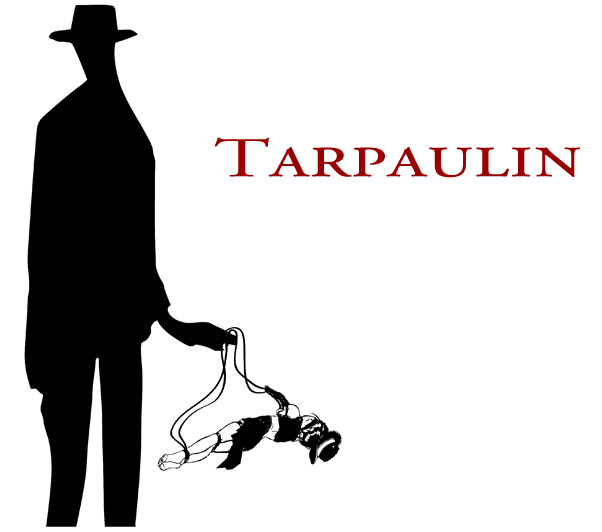 Dog Girl
Dog Girl by Heidi Lynn Staples
Poetry, 82 pages, paperback
ISBN 9780916272951
Ahsahta Press, 2007
$17.50
Reviewed by Karen Dietrich
Dog Girl, by Heidi Lynn Staples, vacillates between the fragment and the whole. Voices within the collection speak through disjointed lyrics and limericks, equal parts singsong, wit and nonsense. This is poetry in limbo, in a constant state of torque, wherein what matters is both content and form, both message and mode of delivery. Limber lines offer glimpses inside delicate juxtapositions of pain, displacement, and delight. While the poet’s head may be in the clouds, exploring a stratosphere of language, her feet are firmly planted in purpose, eyes focused intently upon human experience.
Each turn of phrase, each play on words is not driven by whimsy, but awareness. Take “Arson,” for example:
The spun floor, bleary my eyes,
How injects the barbs sharp the pain:
Ah sleep after that sweat, mind lies,
Till the pull verging blood begins.
Undone the dawn begun, assured
No skin soft idioms of the son:
O son I bled go to your skyward,
Where no now ever hurts anyone.
This is poetry unexpected, siphoning the extraneous to present to the reader the essence of sound, of words heard within the mind’s ear. Adjectives possess heightened descriptive powers, as Staples uses them in sharp and arresting ways, often ignoring the basic principles of language. But who needs rules in poetry like this? These poems exist to challenge what we know of a word’s imaginary boundaries. And Staples hops, skips and pliés over these boundaries with grace and gumption. We “go on to your skyward,” with the speaker, trusting her to take us to a place we’re not quite sure exists, yet greedily anticipate with open arms (and ears).
Throughout Dog Girl Staples spins themes of childhood, love, uncertainty, and loss. At different moments we are given: “these reaches of a sizzled sum. these branches aloft as scission” (23); “flowers archived / in the right blight off diagnosis” (45); and “a breeze wild like those strings at the heart / of things, those throes singing our cells into living” (66). This collection is certainly ear candy, but what Staples offers is more than a shallow dip in the sensory pool. It’s a full dive to the bottom of being, to what it means to experience the world as both the self and the other.
Questions abound, but the answers are not paramount – it’s all in the asking. Look at “Yellow Leotard,” one of several ekphrastic poems in Dog Girl in response to photographs by the artist Kanako Sasaki (who’s also responsible for the cover photograph that so deftly embodies the mettle of the poems within):
red carpet spills the fray, the body di-
splayed, the dead-one’s a rose
feet tuned in and you can’t seize the face.
“innocence is certainty”
in a look by a woman who knows her hystery.
is that a shadow or a saying?
toward whom, that allotted tree preaching for whom
a bout beyond the edge, am i your mother?
Lines like these lay bare the subconscious that blooms within the heart and mind of the speaker. As reader, one experiences an accumulation of images and sounds, each toppling toward a terrible and beautiful destination. Yet at the end, we’re not quite sure if we’ve arrived or if our trek has just begun. There is a delicate balance between control and chaos, as Dog Girl precariously walks the tightrope strung between cynicism and wonder, carefully conjuring the sounds and images that equal something greater than the sum of their parts.
Take, for example, twelve poems throughout the collection that gather their titles from the months of the year. It appears Staples can take virtually anything and wrench it to suit her needs, inventing her own chronology, a broken calendar longing to be mended. The collection opens with “Janimerick” and closes with “Decemblank,” a stunner with an ending that doesn’t truly end, catapulting the reader further into a space where meaning is both lost and found: “chance chanting in us, like a girl’s hair waving / in a breeze and that O please, she said, don’t stop…”
The reader doesn’t walk away from a book like Dog Girl, but rather gallops, fueled by the poet’s intense awareness of both an interior and exterior world. A few times, Staples may risk too much, with wordplay like “attach the storm windows, lit’s beginning to glint cold,” but overall, her verbal and mental acrobatics succeed in dazzling the reader without blinding. With Dog Girl, Heidi Lynn Staples offers a string of poems, some seemingly whole, others delicately assembled fragments, but all sound, mind, and body.
* * *
Karen Dietrich received her MFA in poetry from New England College in 2008. Her poetry has appeared in The Henniker Review and her nonfiction is forthcoming in an anthology about women and motherhood titled Who's Your Mama to be published by Soft Skull Press in 2009. She lives in Pennsylvania.




